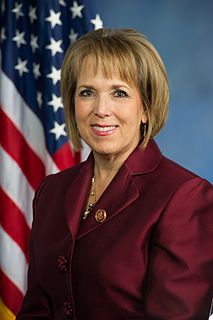A Quote by Kenneth E. Boulding
Thus we seem to be on the verge of an expansion of welfare economics into something like a social science of ethics and politics: what was intended to be a mere porch to ethics is either the whole house or nothing at all. In so laying down its life welfare economics may be able to contribute some of its insights and analytical methods to a much broader evaluative analysis of the whole social process.
Related Quotes
To think the welfare and the goodness of the next generations is indeed a good ethics, but there is much greater ethics than this: To think the welfare and the goodness of the current generations, the very people of now! The reason is simple: Future may not exist, it is only a possibility, but the people of now are not possibility, they are here!
Modern economics is sick. Economics has increasingly become an intellectual game played for its own sake and not for its practical consequences for understanding the economic world. Economists have converted the subject into a sort of social mathematics in which analytical rigour is everything and practical relevance is nothing.
Doing for people what they can and ought to do for themselves is a dangerous experiment. In the last analysis, the welfare of the workers depends upon their own initiative. Whatever is done under the guise of philanthropy or social morality which in any way lessens initiative is the greatest crime that can be committed against the toilers. Let social busybodies and professional "public morals experts" in their fads reflect upon the perils they rashly invite under this pretense of social welfare.
The fundamental flaw in Social Security and Medicare is that they violate the 'welfare principle' in economics. The welfare principle forms the fundamental basis of all charitable work in churches and other private organizations: assist those who need help, and equally important, don't assist individuals who can take care of themselves.
In my view, there was a long period in which analytical philosophy had little to say about ethics. I think their intellectual tools did not do well with it, and analytical philosophy was above all about revolutionizing the philosophical tool box. It was more or less assumed that the Truth about ethics was some form of utilitarianism (perhaps because some consequentialist calculus looked to them like a respectable tool). Kantian ethics was then interpreted as a particularly odious version of the False - "deontology" - and treated with contempt.
The Philosophy of Tea is not mere aestheticism ... for it expresses conjointly with ethics and religion our whole point of view about man and nature. It is hygiene, for it enforces cleanliness; it is economics, for it shows comfort in simplicity rather than in the complex and costly; it is moral geometry, inasmuch as it defines our sense of proportion to the universe.
Somehow, the fact that more poor people are on welfare, receiving more generous payments, does not seem to have made this country a nice place to live - not even for the poor on welfare, whose condition seems not noticeably better than when they were poor and off welfare. Something appears to have gone wrong; a liberal and compassionate social policy has bred all sorts of unanticipated and perverse consequences.
I started in the law; and the study of law, when it precedes the study of economics, gives you a set of foundation principles about how human beings interact. Economics is very useful, and I studied economics in graduate school. But without understanding the social and organizational context of economics, it becomes a theory without any groundwork.



































